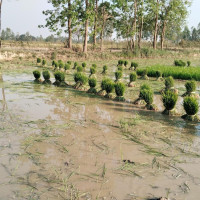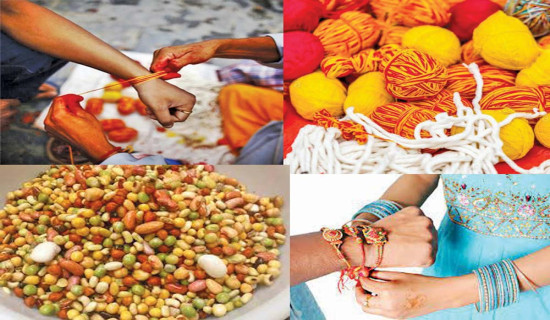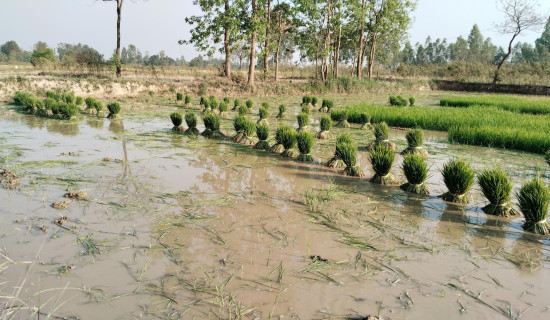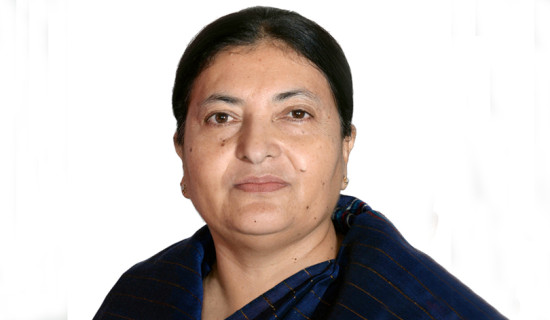- Saturday, 9 August 2025
Unchecked antibiotic use raises health concerns
By Pallav Bhusal
Kathmandu, Aug. 9: Excessive and unregulated use of antibiotics in Nepal has raised serious health concerns, with experts warning that we may be heading towards a medical crisis.
According to health officials, the overuse and misuse of antibiotics are fuelling the rise of antibiotic-resistant bacteria, particularly in the rural parts of the country.
Talking to The Rising Nepal, Dr. Prakash Budhathoki, spokesperson for the Ministry of Health and Population, said that antimicrobial resistance is slowly becoming a major issue. “In the rural areas, people still buy antibiotics directly from pharmacies without a doctor’s prescription. This is happening despite existing laws clearly prohibit pharmacists from selling antibiotics without proper consultation,” he said.
Dr. Budhathoki informed that, while there is a law in place to regulate the distribution of antibiotics, enforcement remains weak. Many pharmacies, particularly in remote areas, continue to dispense antibiotics on demand, without asking for a prescription or checking the patient’s medical history. He pointed out that such a practice is one of the key drivers of growing resistance.
“Antibiotics are being heavily used in livestock, especially in pigs and broiler chickens. These animals are given antibiotics not just for treatment, but mainly for growth promotion. When people eat meat of these animals, they are indirectly exposed to antibiotics, which contributes to resistance in the population,” he said.
One alarming example of the impact of antibiotic resistance is the case of Utkrista Nepal, a 35-year-old man from Lokanthali, Bhaktapur.
After suffering from a persistent infection, he sought treatment at HAMS Hospital in Kathmandu. Doctors discovered that his infection no longer responded to commonly used antibiotics, requiring him to be treated with stronger, more expensive medication. His case is not isolated, and hospitals are reporting similar patterns more frequently.
Dr. Ankit Rimal, a critical care specialist at the Teaching Hospital (TUTH), reported a growing number of cases involving antibiotic and antifungal resistance.
“Many patients are struggling with treatment due to the ineffectiveness of commonly used antibiotics. This represents a significant medical emergency that must be urgently addressed,” he said.
Dr. Rimal noted that cases of multidrug-resistant (MDR) and extensively drug-resistant (XDR) organisms are increasingly being observed at TUTH.
"We are also noticing instances of primary drug resistance, and these cases are becoming alarmingly frequent," he added. Such infections require advanced and specialised treatment approaches.
Dr. Budhathoki also explained that antibiotics are divided into several categories, from first-line to fourth-line medicines. “First-line antibiotics are the ones used for common infections. But once people become resistant to these, they need second, third, or even fourth-line drugs. These are more powerful, often come with more side effects, and are far more expensive. If resistance continues to grow, we might soon run out of effective treatments altogether,” he said.
He further emphasised the importance of public awareness. “People in Nepal still think antibiotics are a cure for everything, from colds to body aches. This misunderstanding leads to misuse. We are trying to generate awareness through television, radio, and social media, but the response so far has been minimal. Behavioural change takes time, and we need stronger support from all levels of government and civil society,” said Dr. Budhatoki.
He called for stricter monitoring and regular inspections of pharmacies to make sure they are not violating the rules. He also stressed the need for training healthcare workers and local health volunteers, especially in rural communities, so that they can properly educate people on when and how to use antibiotics.
Experts are also urging the government to create a national database to track antibiotic prescriptions and resistance trends. This kind of surveillance, they argue, will help health authorities better understand the scale of the problem and respond more effectively.
Obviously, Nepal is facing a slow-moving health disaster unless urgent action is taken. The careless use of antibiotics by both people and the farming industry, combined with weak enforcement of laws, has created the perfect conditions for drug-resistant bacteria to thrive. Dr. Budathoki warned, “If we don’t act now, there may come a time when even simple infections become untreatable. We must take this threat seriously before it’s too late.”














